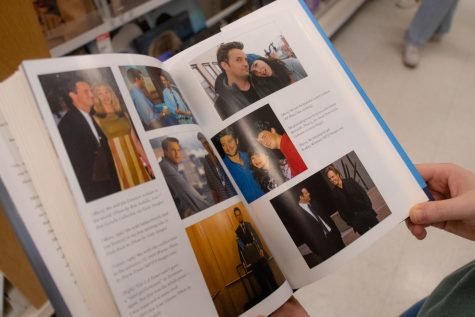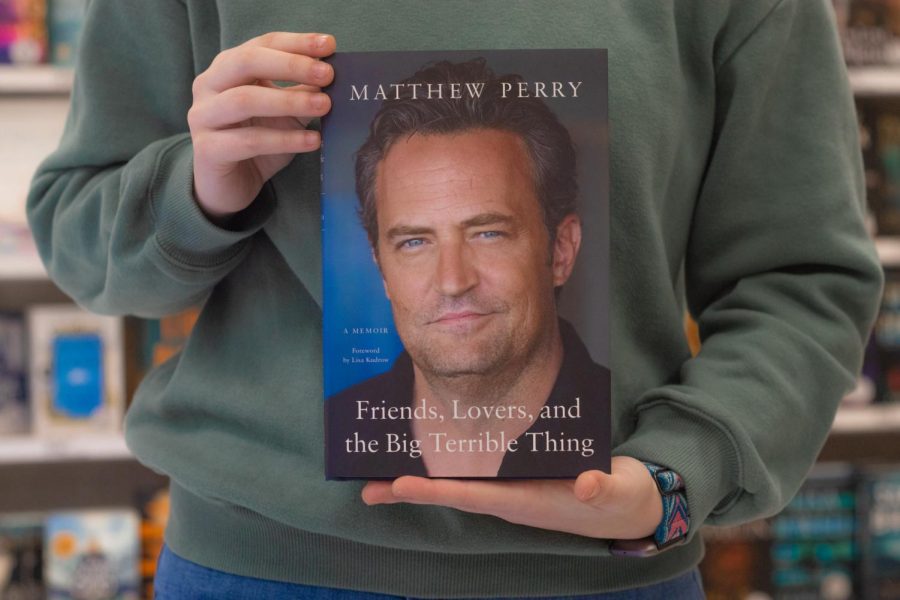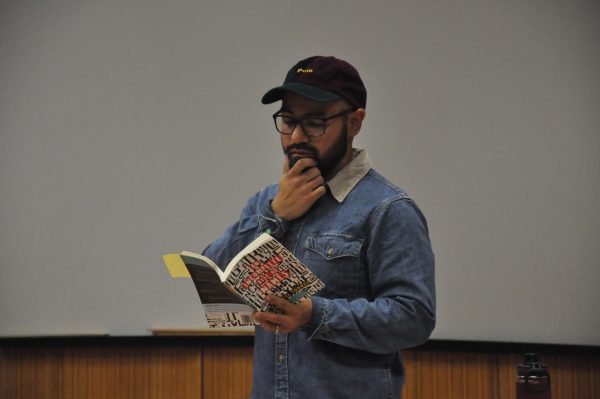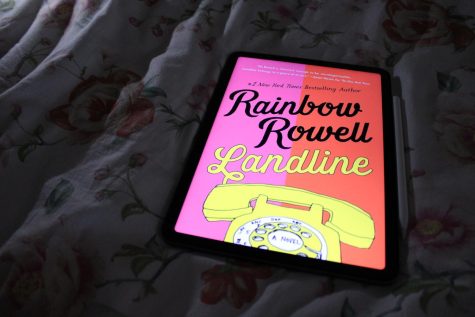Book Review: “Friends, Lovers, and the Big Terrible Thing” by Matthew Perry
Matthew Perry’s memoir was published on Nov. 1 2022. The book goes over Perry’s time in Hollywood and struggle with drugs.
January 25, 2023
The past couple of years have brought a number of celebrity-written memoirs regarding experiences in professional spaces and the unfortunate caveats that come with the life of living in the public eye; “I’m Glad My Mom Died” by Jennette Mccurdy, “Becoming” by Michelle Obama, and “Home” by Julie Andrews are to name a few.
“Friends, Lovers, and the Big Terrible Thing” by Matthew Perry made its way onto store shelves late last year, and stands as one of many memoirs relating to the troubles and tribulations that come with a life of addiction. Perry, throughout the book, describes his time on “Friends” while fighting an opioid addiction and alcoholism, and states that you can track whether he was addicted to one or the other based on his weight.
“You can track the trajectory for my addiction if you gauge my weight from season to season,” Perry writes. “When I’m carrying weight, it’s alcohol; when I’m skinny, it’s pills. When I have a goatee, it’s lots of pills.”
Being able to see in real time how Perry was struggling with the simple click of a button is an interesting factor in his addiction; it truly is easy to see the physical toll an opioid dependency and alcoholism took on Perry’s body throughout the filming of “Friends”. Looking at the beloved show through that lens makes the sitcom have a different impact on a second, third, or twentieth watch-through.
The memoir itself starts off with the discussion of Perry’s childhood and his “unaccompanied minor” status, which he states was almost the title of the book before it was published. Since his father lived in California and his mother in Ontario, Perry took flights back and forth between them from a very young age, which contributed to feelings of isolation and abandonment, leading Perry to internalize the thought that he had to do and fix everything on his own.
Going through the stages of his life, “Friends, Lovers, and the Big Terrible Thing” covers the beginning of Perry’s addiction at the ripe age of fourteen, getting into the acting business after moving to his dad’s home in California, and the back and forth rollercoaster of addiction, women and rehabilitation centers.
The biggest piece of improvement that critics of Perry’s memoir have brought up is primarily the editing of the sequence of events throughout the book. The last third of the memoir seems to go through the cycle of meeting a woman, leaving the woman before she can leave him, relapse, repeat. This creates a relatively monotonous last half of Perry’s story, which I believe could have been improved by a few editing changes.
I am by no way saying that Perry’s recount of addiction and Hollywood life is not worth a read, as his overall redemption after the harrowing details of multiple overdoses was very disconcerting to read at points but a very eye-opening look at a struggle that pains millions of people in America every day. One of recurring perspectives Perry introduces early on in the book is one that has been seen in other memoirs: being famous is not all it’s cracked up to be.

Perry acknowledges his privilege in being in the public eye, primarily in terms of financial stability, but expresses his overall discomfort in being recognized everywhere he goes and having big life events such as breakups, relapses and his addiction in general being broadcasted for millions of people to see. Although Perry states that if he had the chance to audition for “Friends” again, he would, the fame caused many setbacks in his mental health and general well-being.
“Now, all these years later, I’m certain that I got famous so I would not waste my entire life trying to get famous. You have to get famous to know that it’s not the answer,” Perry says. “And nobody who is not famous will ever truly believe that.”
Overall, Perry’s recount of his addiction and the impact it had on the people around him including his family and cast members was harrowing, inspiring, and hard to listen to at many points (for good reason). Having someone with a large platform publish a piece of work regarding substance abuse is important and is hopefully reaching the individuals who need it most.
“So, I try to improve myself daily,” Perry writes. “When those moments come and I am needed, I’ve worked out my shit, and do what we are all here for, which is simply to help other people.”







































































